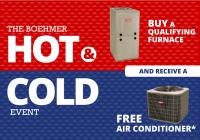Every home has need of a handful of filters that provide with comfortable, affordable air quality and temperature control throughout the year. So, when buying a new filter or upgrading your current system to provide the right comfort level for your home, there are a few things to consider. First is the actual rating of your filters. Every filter is rated for a particular level of efficiency. The higher the rating, the more particles it catches, but also the more it will cost.
Air Filter Ratings
Air filters are rated with a number of scales but the only one that really matters is the HEPA filter rating. HEPA stands for high efficiency particulate absorbing. These types of filters are considered the best on the market. A HEPA filter comes with a number of options. The actual device that uses the filter will have an MERV rating that corresponds to how small of particles it can capture.
An entry level MERV rating is usually around 10 and will capture most major particles like dust, debris, dander and pollen. However, the highest rated HEPA filters have MERV ratings of 13 and can capture particulates as small as 0.3 microns 99.7% of the time.
Some filters are even capable of capturing viruses and bacteria, which are often much smaller than those other particles but can be caught in the debris field through the filter.
What You Actually Need
So, what does your home actually need? It depends largely on how much you need to filter out of your indoor air. Most HVAC providers can provide full testing of your indoor air quality and let you know if you need to target anything in particular. Most often, the contaminants you should worry about include dust, pollen and dander which mean a modest MERV 10 air filter is plenty.
However, if your air is filled with smaller contaminants like mold spores, a high grade HEPA filter is a must – not just for your comfort but for your health.
There are also other indoor air quality products you can get to supplement your indoor air quality system. These include air cleaners with electronic ionization, UV germicidal lights to target airborne pathogens and humidity control devices to create the ideal environment in your home. Whatever you choose, know that it is possible to keep your family comfortable year round.


